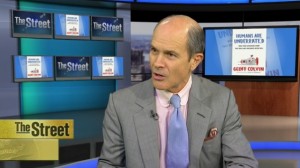According to a report done by Bowker – the world’s leading provider of bibliographic information – over 1.5 million books were published in the year 2013 alone. And while that figure may seem outdated (we don’t have current statistics for the years 2014 and 2015 yet), I think it’s safe to assume that this number has only increased since then.
Also, the majority of these books are published by first-time authors who are wading into the waters of a very unique and idiosyncratic industry. At best, it can be confusing. At worst, very frustrating.
So we thought we could help these authors by posting a list of FAQs about book publicity.
Here they are:
Q: What role does the publicist play in the book campaign?
A: Your publicist is your book’s advocate to the media, and plays an important role in the campaign. Her main job is to secure media coverage in print, online, and broadcast outlets but she may also help coordinate events, do social media training and work to position you as a thought leader through speaking opportunities.
You may have written the best book of the 21st century, but without publicity, no one will know about it!
Q: Typically, at what point does the publicist join the campaign?
A: You should expect to hear from your publicist about six months prior to your book’s publication date. At this time she will read the book, formulate how to position the book, and introduce herself to you – all of which needs to happen before the first big push to the media.
Q: What is a galley or Advanced Reading Copy?
A: It can be confusing, but these two terms are actually one in the same. A galley is a bound copy of your manuscript that essentially looks like a paperback. Publicists use these advance copies to reach out to long lead media and important contacts. Long lead media primarily consists of magazine editors whose production schedules force them to look at article ideas and potential topics about three to four months ahead of time. For example, most magazines are working on their February issues right now (November).
Q: What’s the difference between the “galley phase” and the “finished book phase?”
A: In a book campaign, there are two phases of outreach: first with galleys and then with finished books. As mentioned above, the galley phase takes place several months prior to publication. Depending on the book, a publicist will expect to secure anywhere between five and 15 media commitments during this time. It often feels like a slow period to authors, but it’s an important time for the publicist, as she often gets feedback on the pitch – what’s working and what’s not.
The finished book phase starts one month prior to publication date. Outreach during this time focuses on short lead outlets: newspapers, weekly magazines, online publications and bloggers, radio and TV. This is the bigger push of the two and the finished book list will typically have almost twice the amount of contacts than the galley list. You will feel a difference in momentum as interview requests come in and more media is secured.
 Q: Do I need to take time off of work during the week of publication for media interviews?
Q: Do I need to take time off of work during the week of publication for media interviews?
A: We often refer to a book campaign as a marathon, not a sprint. While we do our best to coordinate media to land during publication week, it’s very hard to predict when media requests will come in, and when the actual interview will need to take place. For these reasons, we never recommend taking time off for the campaign. We are always able to work around busy schedules and journalists/producers tend to be very understanding.
Q: Why are you asking me to write so many guest articles? I just wrote a whole book!
A: Asking our authors to write more after just having written an entire book is often not an easy moment as a publicist. I will refer you to Barbara’s in-depth exploration on this topic for more.
Q: Is social media important to a book campaign?
A: Yes, it is. It’s actually quite important these days. Social media can play two roles in the campaign: as a place to highlight and celebrate recent media coverage, and a place to build relationships with those in the media.
Every author should have – at the very least – a Twitter and LinkedIn account.
Q: I’m getting all this publicity, why isn’t my book selling?
A: Currently, there is no way to draw a direct line between publicity and book sales. If a book is covered by a major outlet (think New York Times, The Today Show, or NPR) you can often see a bump in sales for that day, but publicity has more of a groundswell effect. Our goal is for readers to say to themselves, “I’ve seen that book everywhere lately!”
Q: What is one thing that author’s should understand about the job of a publicist?
A: Okay, so you may not have actually asked this question, but I think it’s an important one. Being a book publicist is a fun, engaging and rewarding job but it’s also hard. Really hard, in fact. A typical member of the media receives hundreds of books each day and even more email pitches in her inbox. They don’t paddle down a stream of information each day; they are white water rafting down it. We do our absolute best to be heard and stand out in this environment but it takes a significant amount of effort, creativity, and endurance.
Please be patient with us, and know that we are always doing our absolute best for your book.
Have more questions that you’d like answered? Email Margaret at [email protected]. We’re happy to hear from you!